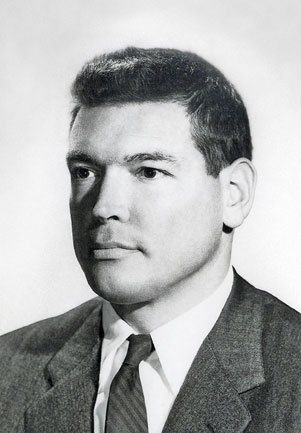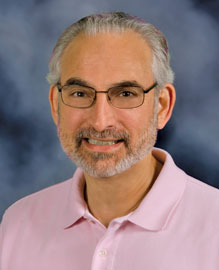The Spring 2008 edition of the EMC Society Newsletter introduced the Society membership to the newly created Completed Careers Committee. Bruce Archambeault, Don Heirman, Andy Drozd, Don Sweeney and I comprise the committee. As chairman, I would like to personally thank the committee for all the hard work that was put in to taking a vision and turning it into a reality.
The goal of the committee is to make sure EMC Society members who pass away are recognized and honored. In order for the committee to be successful though, it depends on our EMC Society Chapter Chairs and general members to inform the committee when a local EMC Society Chapter member or colleague has passed away.
If you know of an IEEE EMC Society member that has recently passed away, please notify the committee so they may be included in the next edition of the Newsletter. Please send information to Bob Davis, robert.h.davis@lmco.com.
In this issue, we recognize with great respect IEEE Life Fellow David Middleton, a member of the IEEE EMC Society. |
A Life Remembered: Dr. David Middleton,
Pioneer of Modern Statistical Communication Theory

Dr. David Middleton, physicist and pioneer of modern Statistical Communication Theory, died on 16 November 2008 at the age of 88. He devoted his career to the study of information transfer and signal processing with numerous applications in radar, underwater listening devices, satellite technology, and wireless communications.
Born in New York City in 1920, he graduated from Deerfield Academy (1938), Harvard College (1942), and received his Ph.D. from Harvard in 1947. In 1960, he published An Introduction to Statistical Communication Theory, which today remains the seminal text for the field. For over 50 years Middleton taught and inspired his graduate and doctoral students at Harvard University, Rensselaer Polytechnic Institute, Columbia University, Johns Hopkins University, University of Texas, Rice University, and the University of Rhode Island. He was a consultant to various government agencies and served on advisory boards, including the U.S. Naval Research Advisory Committee (1970-1977) and the Supercomputing Research Center, Institute of Defense Analysis (1988-91).
In 1958 Middleton was elected a Fellow of the IEEE “for contributions to the theory of noise in electronic systems” and attained Life Fellow status in 1986. He was also a Fellow of the American Physical Society, the Acoustical Society of America, the New York Academy of Sciences, The Electromagnetics Academy of MIT, the National Academy of Engineering, and the AAAS. Other memberships included the American Mathematical Society, the Explorers Club, Sigma Xi, Phi Beta Kappa, and the Authors Guild. Throughout his career, he received numerous honors and prizes for his work and publications.
More than a physicist, Middleton believed in the importance of participating in and cultivating the arts and humanities. He was meticulous in crafting the prose for his books and papers, believing there was no excuse for scientists and engineers to be mediocre writers. He read widely, collecting books on history, philosophy, biography, art, and music. He enjoyed listening to music from the Classical and Romantic eras, and played the piano—especially Beethoven, Schubert, and Chopin—with great dexterity and feeling. Over the years he created many elegant line drawings of imaginative scenes and characters. Middleton loved the Cape Cod seashore, where he spent part of every summer or fall with his family, playing tennis and enjoying the ocean and walks in nature. He could tell outrageous puns and was very fond of cats.
At the time of his death, he was actively working on Elements of Non-Gaussian Statistical Communication Theory: A Space-Time Treatment, the sequel to his first book. It summarizes his work of over 65 years in Statistical Communication Theory as well as presenting results from more recent research gained by adding nonlinear effects and time analysis to earlier methods. The sequel will be published posthumously in some form.
To share with future generations the body of knowledge he amassed during his lifetime, Middleton arranged to donate his personal technical library to the University of Maryland. He chose MIT to be the new home for his consulting contracts and related papers.
During his lifetime, the IEEE History Center conducted two oral histories with Dr. David Middleton. The first interview, conducted in February 2000, covers Middleton’s academic and consulting careers, as well as his involvement in IEEE. The second, conducted in August 2007, is a follow-up to the 2000 interview. Both oral histories can be accessed through the IEEE Global History Network at ghn.ieee.org. EMC
|
|
|
 Completed
Careers
Completed
Careers 